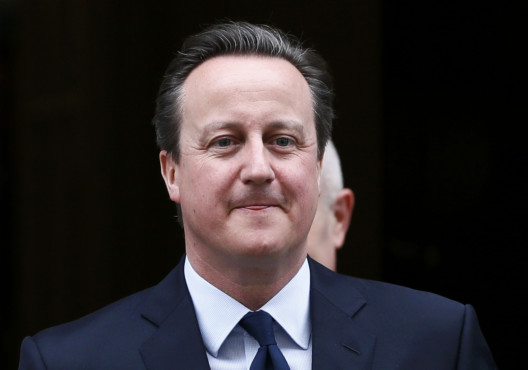
When news of the Brussels bombings reached Downing Street on Tuesday morning, staff frantically called intelligence and security officers around Whitehall to ask whether Britain was also about to come under attack. Counter-terrorism staff have warned for weeks that Britain faces the very real threat of terrorist attack. Tuesday’s killings confirmed that extremist terrorists still retain the ability to commit mass murder in European capitals. If the attacks served as a reminder of the formidable destructive powers that the likes of Daesh (the self-proclaimed Islamic State of Iraq and the Levant) still have, they should also focus minds in Whitehall on precisely how the government intends to go about eradicating the threat, at home and abroad.
So far as the home front is concerned, Cameron believes that, as he said after Tuesday’s meeting of the emergency Cobra committee, Britain faces a “very real terror threat”, and he ordered that extra security measures be implemented at ports, airports, the Tube network and major railway stations. Such measures will certainly help to allay public concerns in the short term. But voters should have less confidence in the prime minister’s seemingly semi-detached attitude to the broader challenge of confronting the menace beyond British and European shores. To some diplomats, the explanation for Cameron’s reticence in confronting Daesh in the Middle East is the amount of energy he is investing in the campaign for Britain to remain in the European Union (EU).
Since he announced the referendum date, the Prime Minister’s primary focus has been on campaigning in favour of Britain’s continued membership. Cameron’s commitment to the EU cause, though, has come at a price, for it has meant that Downing Street is avoiding or postponing difficult decisions that aides fear could have a negative impact.
For example, last week, the Daily Telegraph reported that Cameron is to delay publication of the long-awaited Chilcot report into the Iraq war until after June’s EU referendum, because he is anxious to avoid any public controversy that might play to the advantage of the Brexit campaign.
Now, at a time when Britain should be investing all its efforts in forging a strong alliance with regional partners to defeat Daesh, it appears Downing Street is pursuing the same risk-averse strategy in its dealings overseas. The first manifestation of this safety-first approach came at the start of the year when Cameron cancelled a visit to Saudi Arabia and other Gulf states on the grounds that he needed to make the referendum his priority. But by so doing, he has missed an important opportunity to strengthen ties with traditional allies who are on the front line against Daesh, and could prove immensely useful in the campaign to destroy the fanatics.
A more recent example of Downing Street’s neglect of Britain’s regional friends can be seen in its clumsy handling of Egypt, another country that has a key role to play in the war against Daesh. Relations have been strained with Cairo since Cameron, in the wake of Daesh’s bombing of a Russian jet over Sinai last October, ordered the cancellation of all British flights to the resort of Sharm Al Shaikh.
As Egypt relies heavily on tourism to sustain its economy, the decision has had a catastrophic impact, leading Cairo to devalue its currency. Since the bombing, the Egyptian authorities, working closely with British security experts, have made significant improvements to airport security at Sharm Al Shaikh, as well as other major tourist destinations.
But even though the Foreign Office has now recommended the resumption of flights in time for the new holiday season, Downing Street has avoided being drawn on the issue for fear of provoking a row over its handling of the original crisis, which resulted in thousands of British tourists being stranded at the Sinai resort.
Libya, where Daesh militants are threatening to seize control of the country’s vast oil wealth, is another country where Britain’s allies would like it to provide strong leadership but, thanks to Cameron’s current EU obsession, none has been forthcoming. Cameron may believe his time is better served preserving Britain’s seat at Europe’s top table, but in the meantime, the perception continues to grow in the Middle East and elsewhere that Britain can no longer be regarded as a serious player, whether in terms of maintaining relations with traditional allies or prosecuting the campaign to destroy Daesh.
Britain’s very modest contribution to the United States-led air campaign against Daesh is a case in point. Yet, while this approach may help Cameron to achieve his goal of maintaining Britain’s EU membership, it means Britain’s role in the broad campaign to defeat Daesh is diminished. Rather than taking the fight to Daesh in its own backyard, all Britain can do is strengthen its own security measures against the day when the extremists seek to bring murder to British streets.
— The Telegraph Group Limited, London, 2016
Con Coughlin is the Telegraph’s defence editor and chief foreign affairs columnist.










